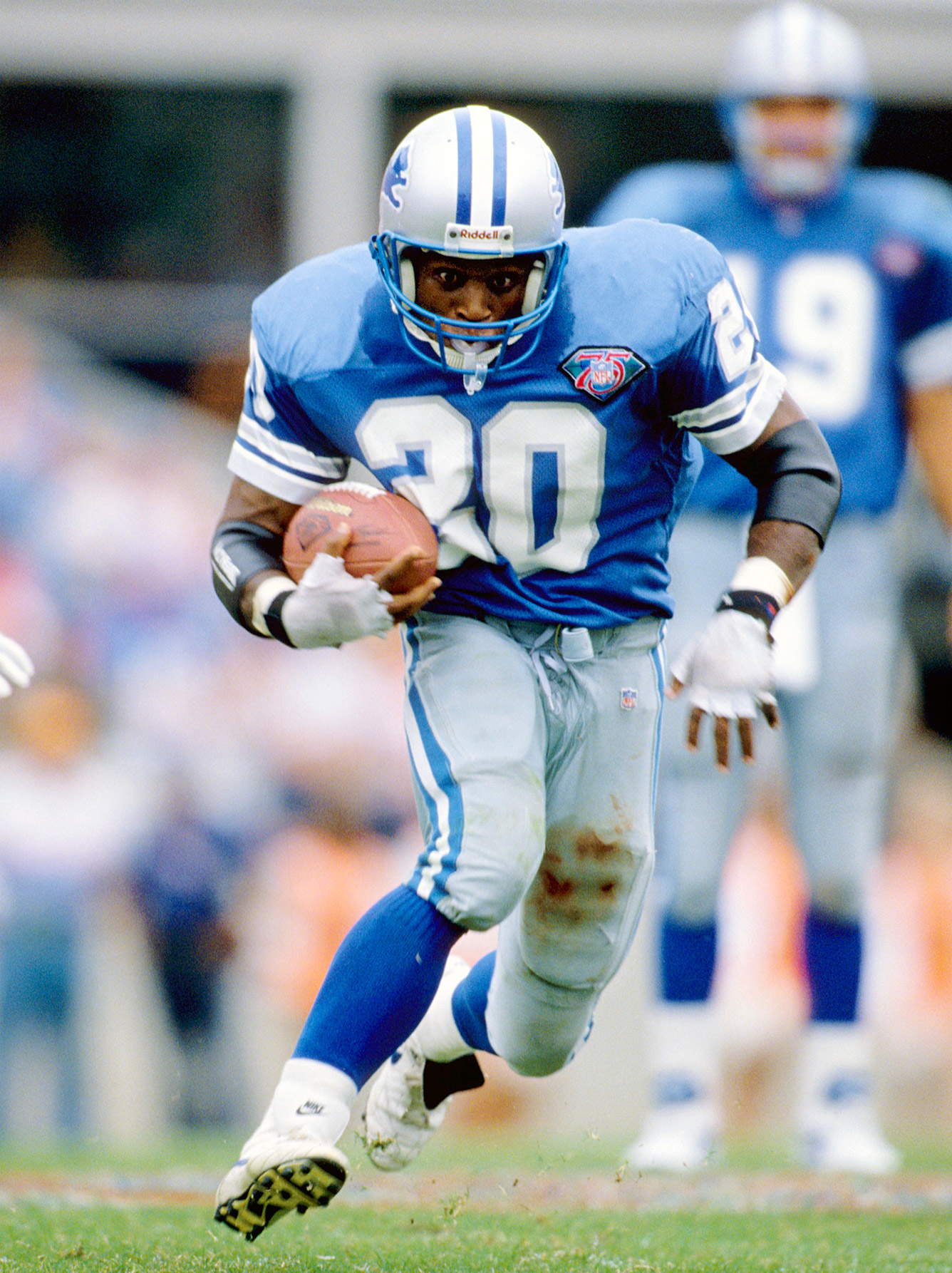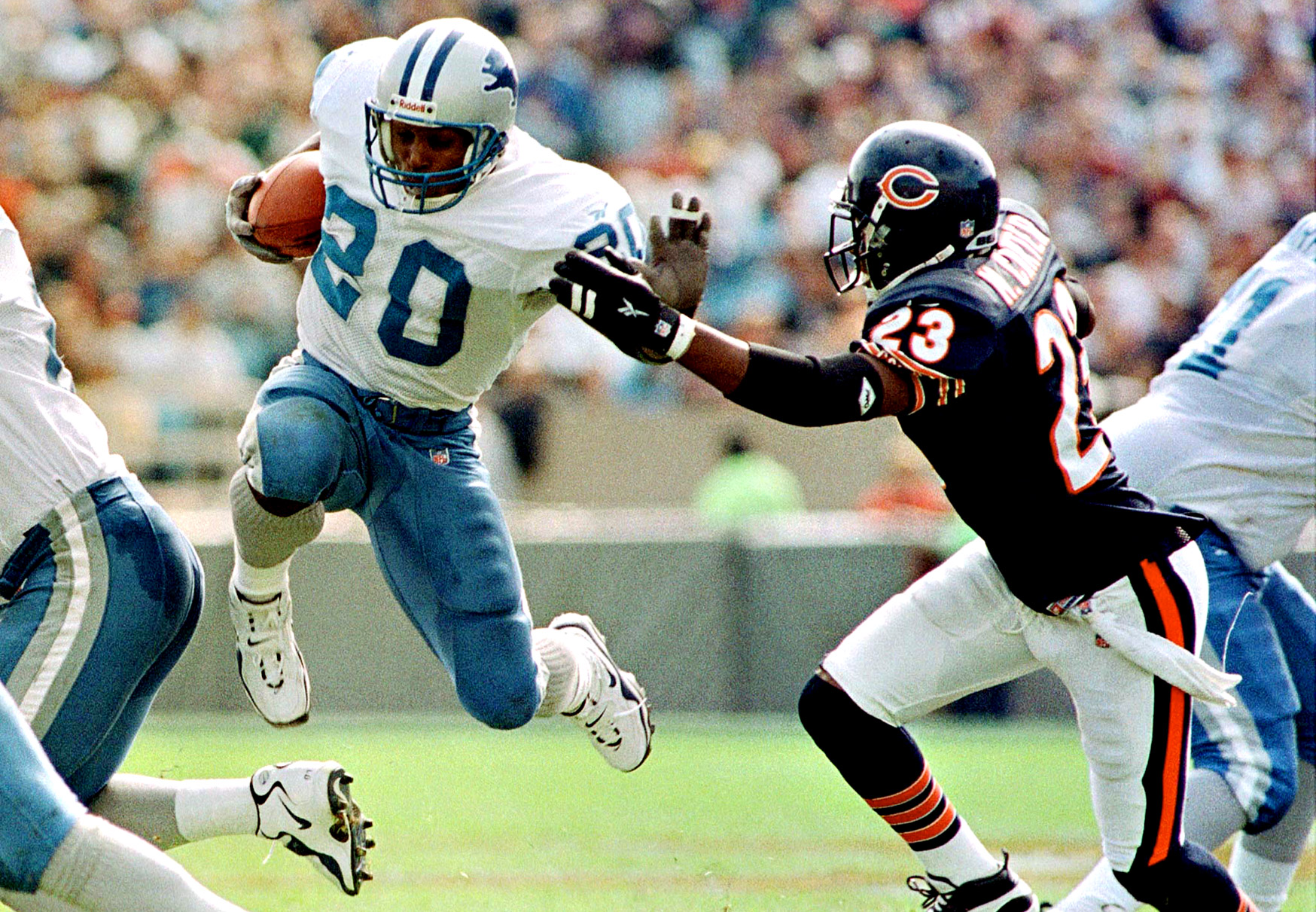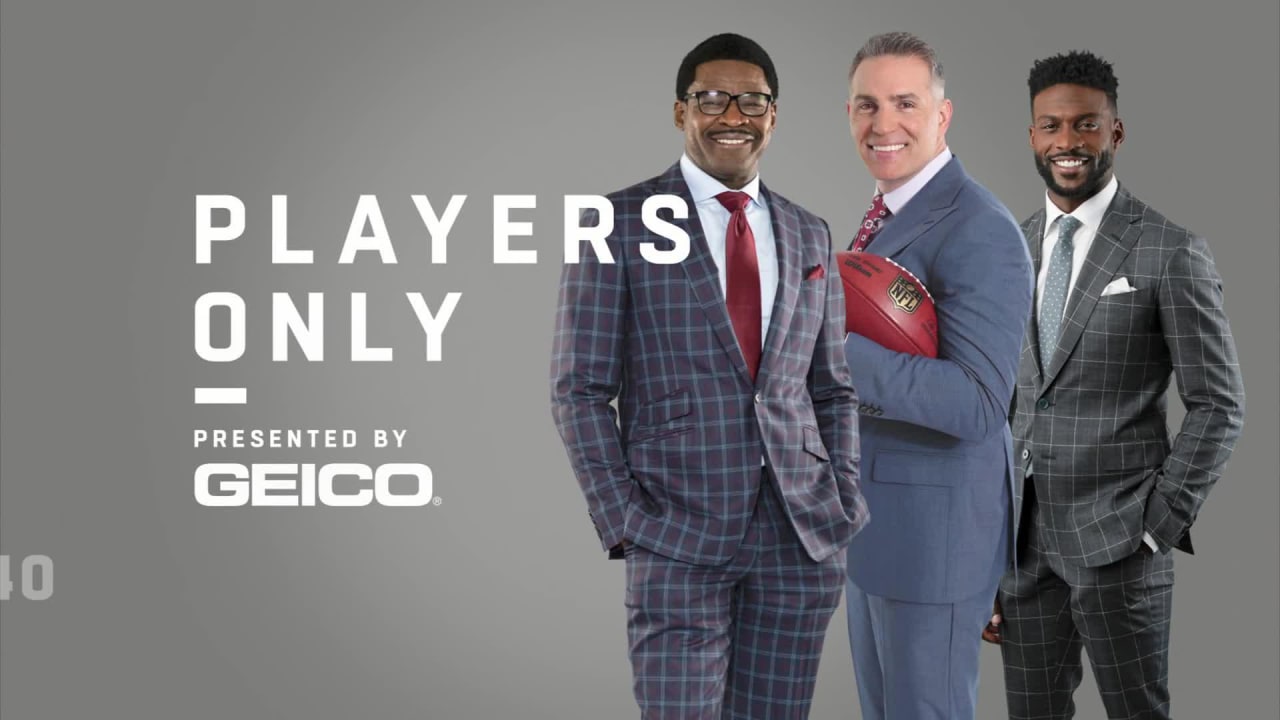Irvin Slams NFL For Sanders 'Robbery': A Deep Dive Into The Controversy
When you hear the phrase "Irvin Slams NFL for Sanders 'Robbery'," it’s like stepping into a world where sports, politics, and emotions collide. This isn’t just about football—it’s about fairness, integrity, and the voices of legends who refuse to stay silent. The NFL has been under scrutiny for years, but this particular incident involving Michael Irvin calling out the league feels like a tipping point. Let’s break it down and see why everyone’s talking about it.
It all started when Sanders—a player who gave everything on the field—was robbed of something he deserved. Irvin didn’t mince words, and his criticism went viral in no time. But what exactly happened? Why is Irvin so upset? And more importantly, why should you care? If you’re into sports or even just interested in justice, this story will resonate with you.
This article isn’t just about reporting facts; it’s about understanding the bigger picture. We’ll explore Irvin’s stance, the history behind the controversy, and why the NFL’s decisions matter beyond the game. So grab your popcorn, and let’s dive into the drama that’s shaking up the sports world.
Who is Michael Irvin?
Before we get into the meat of the controversy, let’s talk about the man behind the mic. Michael Irvin is no stranger to controversy—or headlines. Known as one of the greatest wide receivers in NFL history, Irvin played for the Dallas Cowboys from 1988 to 1999. During his career, he earned three Super Bowl rings and was named to the Pro Bowl six times. But his legacy extends far beyond the field.
Biography of Michael Irvin
Here’s a quick rundown of Michael Irvin’s life and career:
| Full Name | Michael Duane Irvin |
|---|---|
| Date of Birth | February 25, 1966 |
| Place of Birth | Fort Lauderdale, Florida |
| Position | Wide Receiver |
| College | University of Miami |
| Pro Career | 1988-1999 (Dallas Cowboys) |
| Hall of Fame | Inducted in 2007 |
Irvin’s post-playing career has been just as fascinating. He’s become a sports analyst, entrepreneur, and advocate for social justice. His voice carries weight, and when he speaks, people listen. Now, let’s see why he’s speaking out against the NFL.
Understanding the "Robbery" Allegation
The term "robbery" might sound dramatic, but in the world of sports, it carries weight. Irvin accused the NFL of robbing Barry Sanders, one of the most electrifying running backs in league history. Sanders retired abruptly in 1998 after nine stellar seasons with the Detroit Lions. Many believe he left because he was frustrated with the direction of the league and the lack of respect shown to players.
Irvin’s comments suggest that the NFL failed to recognize Sanders’ contributions and treated him unfairly. This isn’t just about money—it’s about respect, acknowledgment, and legacy. Sanders was a player who redefined the position, yet his exit was met with silence from the league.
Why Sanders Matters
Barry Sanders was more than just a player—he was a phenomenon. Here are some stats that show why:
- Retired as the NFL’s second all-time leading rusher
- Won the rushing title four times
- Named to the Pro Bowl ten times
- Inducted into the Hall of Fame in 2004
Despite these accomplishments, Sanders never won a Super Bowl. Some argue that the league didn’t do enough to support him or his team. Irvin’s criticism highlights this disparity and sheds light on the systemic issues within the NFL.
Irvin’s Stance: What Did He Say?
Irvin didn’t hold back when he spoke about the NFL’s treatment of Sanders. In an interview, he said, "They robbed him of his dignity, his respect, and his legacy." These words struck a chord with fans and former players alike. Irvin explained that the NFL often prioritizes profits over people, and Sanders became a casualty of that mindset.
But Irvin’s critique isn’t just about Sanders—it’s about the broader issues facing the league. He pointed out that players often don’t receive the recognition they deserve, especially after they retire. This lack of acknowledgment can have lasting effects on their mental and emotional well-being.
Key Points from Irvin’s Criticism
Here’s a summary of Irvin’s main points:
- The NFL needs to do more to honor its legends
- Players deserve better treatment after retirement
- The league should address systemic issues like inequality
Irvin’s passion and honesty make his words resonate. He’s not just pointing fingers—he’s offering solutions. But what does the NFL have to say about all this?
The NFL’s Response: Silence or Denial?
The NFL has faced criticism before, but this time, the league’s response—or lack thereof—has raised eyebrows. Some argue that the NFL’s silence speaks volumes. By not addressing Irvin’s claims, the league risks appearing dismissive or out of touch with its players’ concerns.
Others believe that the NFL’s silence is strategic. They might be waiting for the controversy to die down before issuing a statement. Whatever the reason, the absence of a clear response has fueled speculation and further criticism.
What Should the NFL Do?
Here are some steps the NFL could take to address Irvin’s concerns:
- Issue a formal statement acknowledging Sanders’ contributions
- Create a program to support retired players
- Engage in open dialogue with former players
By taking these actions, the NFL could demonstrate its commitment to improving player relations and honoring its history.
The Broader Implications
Irvin’s criticism of the NFL goes beyond Sanders’ case. It touches on issues like player safety, compensation, and legacy. These are topics that affect every player, from rookies to Hall of Famers. The NFL’s response—or lack thereof—could set a precedent for how it handles similar situations in the future.
Moreover, this controversy highlights the importance of player advocacy. When legends like Irvin speak out, they amplify the voices of those who might not have a platform. It’s a reminder that change often starts with courage and conviction.
Why Should Fans Care?
Fans might wonder why they should care about a dispute between a former player and the league. The answer is simple: it affects the game they love. When players feel undervalued or disrespected, it impacts the sport as a whole. By supporting players and advocating for change, fans can help create a better future for football.
Historical Context: The NFL’s Track Record
To fully understand Irvin’s criticism, we need to look at the NFL’s history. The league has faced numerous controversies over the years, from player safety concerns to disputes over compensation. While it has made strides in some areas, there’s still work to be done.
For example, the NFL’s handling of concussions and brain injuries has been heavily criticized. Players like Junior Seau and Steve Gleason have brought attention to these issues, but many argue that the league’s response has been insufficient. Similarly, the league’s treatment of retired players like Sanders raises questions about its priorities.
Lessons from the Past
Here are some lessons the NFL can learn from its history:
- Prioritize player safety and well-being
- Listen to players’ concerns and act on them
- Honor the legacy of its legends
By learning from its mistakes, the NFL can build a stronger, more inclusive future for all stakeholders.
The Future of Player Advocacy
Irvin’s criticism is part of a larger movement toward player advocacy. More and more players are using their platforms to speak out on issues that matter to them. This shift reflects a growing awareness of the power dynamics within the league and the need for change.
Technology and social media have played a significant role in amplifying these voices. Players can now reach millions of fans with a single tweet or post. This increased visibility has put pressure on the NFL to address long-standing issues and improve its practices.
What’s Next?
The future of player advocacy depends on several factors:
- Continued support from fans and media
- Collaboration between players and the league
- Implementation of meaningful reforms
As the sports world evolves, so too must the institutions that govern it. The NFL has an opportunity to lead by example and set a new standard for player relations.
Conclusion: Taking Action
Irvin Slams NFL for Sanders ‘Robbery’ is more than just a headline—it’s a call to action. The controversy highlights the importance of fairness, respect, and legacy in sports. By addressing these issues, the NFL can create a better future for all players.
So what can you do? Start by staying informed. Follow the latest developments in player advocacy and support those who are speaking out. Share this article with friends and family to spread awareness. And most importantly, keep the conversation going. Together, we can make a difference.
Thanks for reading! If you enjoyed this article, don’t forget to leave a comment or share it with others. Your voice matters, and together, we can shape the future of sports.


